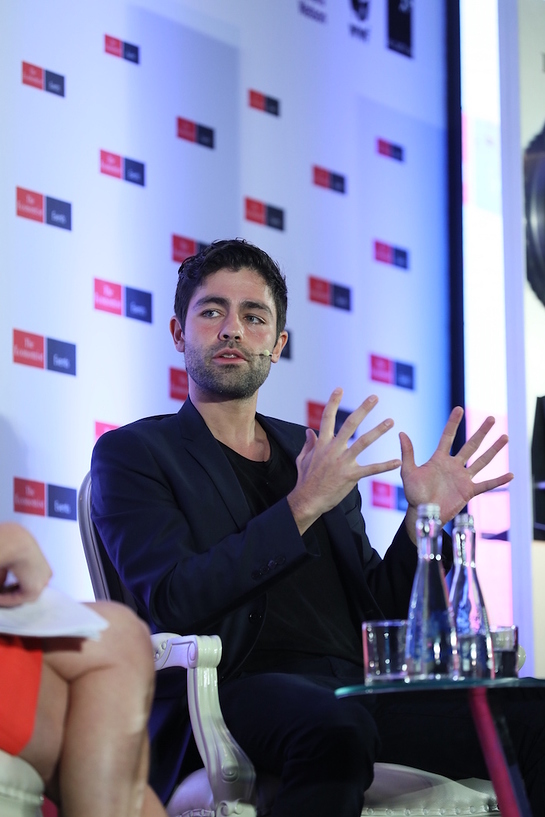Earlier this week, Adrian Grenier visited Bali, where he participated in The Economist’s World Ocean Summit in an effort to spread his message about saving the world’s oceans.

On his trip, Adrian was able to speak to a group of world business leaders, politicians, foreign ministers and environmental advocates about the threat plastics have on our world’s oceans. He also participated in an ocean clean up project and met with the two young girls in charge of Bye Bye Plastic Bags which helped organize the largest beach cleanup in Bali’s history.
The 2017 World Ocean Summit started with a call to action. There have been many conversations about creating a sustainable ’ blue economy’, but the time has come to start doing something about it.
There are huge economic and growth opportunities from investing into the ocean, but also a massive environmental responsibility that needs to be considered.
Panels and interviews included in-depth discussions about plastics and other marine litter, financing the transition to more environmentally-friendly ocean industries, and the complications of moving to more sustainable fishing practices.
One immediate problem driving the conversation around responsible financing is the alarming volume of plastic and solid waste polluting our oceans. Each year, over 10 million tonnes of plastic makes its way into the sea and at current rates, by 2050, plastic in the ocean will weigh more than all of the fish combined, putting intense strain on the ocean and marine life.
Against the backdrop of the Summit, Erik Solheim, President the United Nations Environment Programme (UNEP) announced a global campaign to eliminate marine litter.
Actor and passionate ocean advocate Adrian Grenier pledged his commitment to reducing his use of single use plastics and appealed for everyone to commit to “conscious consumption” through changing personal habits. He also rallied the audience into forming alliances with friends and groups to take collective action that can influence businesses and corporations to evolve sustainable and responsible business models.
Indonesia, the home of this year’s World Ocean Summit is likely the 2nd largest contributor to ocean plastics, and according to the Minister for Coordinating Maritime Affairs in Indonesia, marine plastics in Indonesia are a “slow motion catastrophe.”
Crucially, the summit saw governments, organisations and businesses pledge their commitment to take direct action to staunch the rate of ocean degradation and key ocean economy stakeholders put forward solutions to achieving this through innovative investment frameworks and business practices.





